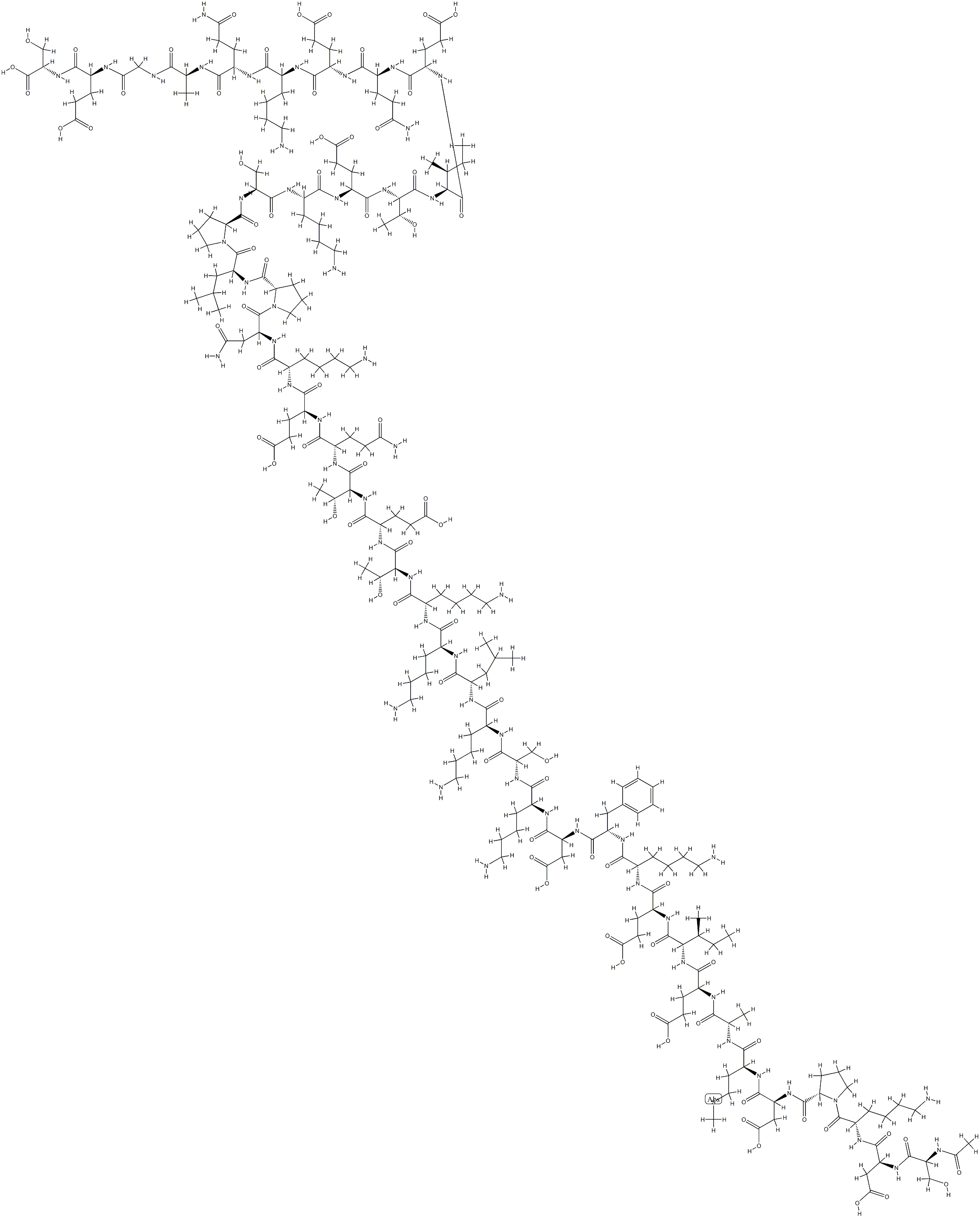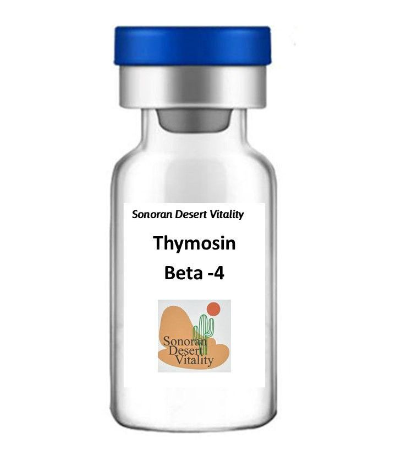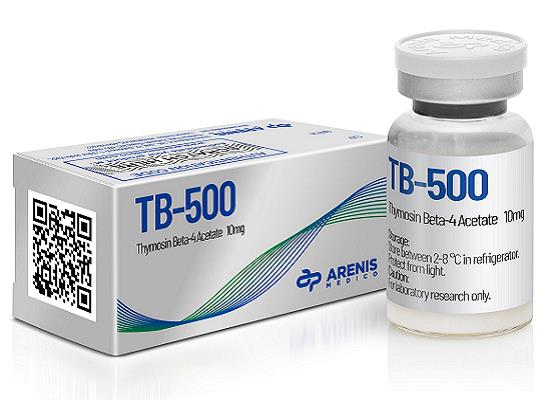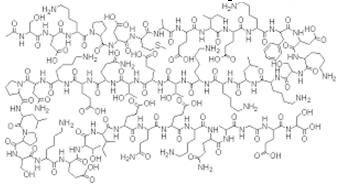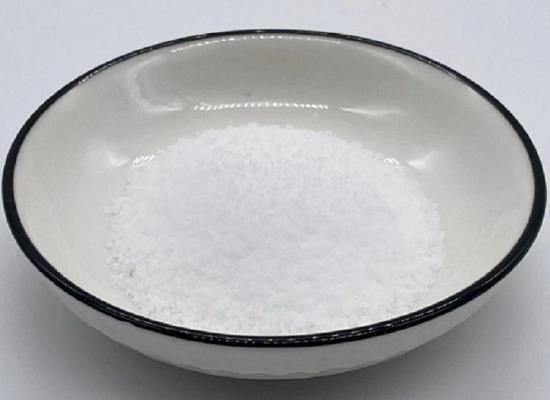Does thymosin beta 4 cause cancer?
Tβ4 expression and function may be cell-type dependent. Tβ4 promotes the growth of cancerous tumors by enhancing new blood vessel formation. This compound may play an oncogenic role in NSCLC progression.
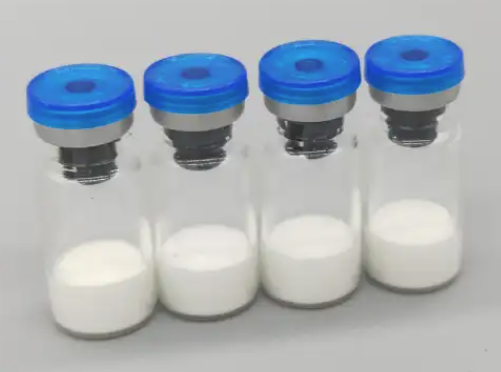
Thymosin β4 (Tβ4) is a 43 amino-acid small peptide originally isolated from bovine thymus and thought to be a thymocite maturation factor. It was subsequently shown that Tβ4 interacts with G-actin and functions as a significant actin-sequestering protein in almost all cell types. Tβ4 is an essential regulator of angiogenesis, wound healing, and cell motility. Multiple studies have indicated that Tβ4 was overexpressed in various tumor tissues and may play an essential role in the carcinogenesis of several cancers, such as malignant renal tumors and non-small cell lung cancer (NSCLC) patients, particularly by facilitating tumor metastasis[1].
Previous studies have indicated the role of Tβ4 in cell proliferation, migration, angiogenesis, and metastasis in many cancers, such as colon cancer, renal cell carcinoma, rat osteosarcomas, and murine fibrosarcomas. SW 480 colon cancer cells overexpressing Tβ4 were more resistant to apoptosis induced by T cells and chemotherapeutic agents. Colon cancer cells' acquired resistance to apoptosis through Tβ4 overexpression might facilitate their survival during metastasis and chemotherapy. The expression of Tβ4 in mouse fibrosarcoma cells was also found to correlate with tumorigenicity and metastatic potential. Up-regulation of Tβ4 in weakly tumorigenic and nonmetastatic QR-32 cells (32-S) converted the cells to develop tumors and formed lung metastases in mice. In contrast, antisense Tβ4 cDNA-transfected malignant QRsP-30 (30-AS) cells significantly reduced tumor formation and metastases. It was also indicated that Tβ4 regulated fibrosarcoma cell tumorigenicity and metastasis through actin-based cytoskeletal organization.
Huang et al. found that Tβ4 is up-regulated in NSCLC, and the knockdown of Tβ4 resulted in the inhibition of NSCLC proliferation in both cell lines and nude mice. Consistent with these results, depletion of Tβ4 has been reported to affect cell proliferation in various cell types, including tumor cells; meanwhile, overexpression of Tβ4 promotes tumor proliferation in mesenchymal stem cells, oral squamous cell carcinoma, and neuroblastoma. However, some studies have reached different conclusions. For instance, during the progression of liver fibrosis, Tβ4 suppressed human hepatic stellate cell proliferation. The expression level of Tβ4 was significantly lower in multiple myeloma cells of patients than in the normal bone marrow plasma cells, and Tβ4 also inhibited the proliferation of tumor cells in myeloma development.
Moreover, it was shown that overexpression of Tβ4 did not increase cell number in tumors in a transgenic strain of mice. These reports suggest that Tβ4 expression and function may be cell-type dependent. Studies in mesenchymal stem cells showed that Tβ4 promotes mesenchymal stem cell proliferation via an interleukin-8-dependent mechanism. It has also been demonstrated that Tβ4 promotes the growth of cancerous tumors by enhancing new blood vessel formation. This study found that Tβ4 silencing decreased CD31-positive mean vessel density within tumor xenografts, suggesting a role of Tβ4 in promoting new blood vessel formation in NSCLC. Therefore, the effect of Tβ4 on blood vessel formation may contribute to promoting tumor growth in NSCLC[2].
Exogenous Tβ4 caused increased secretion of proinflammatory cytokines IL-6, IL-8, and MCP-1. Furthermore, Tβ4 acts through the JNK signaling pathway, which is well known to promote survival and proliferation in pancreatic adenocarcinoma. In addition, Tβ4 expression was increased in NSCLC tissues and cell lines. Tβ4 gene silencing in A549 and H1299 cells inhibited cell proliferation, migration, and invasion in vitro and decreased tumor growth in vivo. Mechanistic investigations revealed a significant decrease in Notch1 activation in Tβ4 gene-silenced cells. Moreover, restoring the Notch1 expression attenuated the function of Tβ4 silencing in NSCLC cells. These findings suggest that Tβ4 may play an oncogenic role in NSCLC progression and maybe a novel molecular target for anti-NSCLC therapy.
References
[1] Yuqing Zhang. “Thymosin Beta 4 is overexpressed in human pancreatic cancer cells and stimulates proinflammatory cytokine secretion and JNK activation.” Cancer Biology & Therapy 7 3 (2008): 419–23.
[2] Dayu Huang. “Thymosin beta 4 silencing suppresses proliferation and invasion of non-small cell lung cancer cells by repressing Notch1 activation.” Acta biochimica et biophysica Sinica 48 9 (2016): 788–94.
You may like
Related articles And Qustion
See also
Lastest Price from Thymosin beta 4 manufacturers
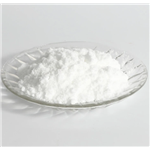
US $50.00-15.00/kg2025-10-31
- CAS:
- 77591-33-4
- Min. Order:
- 1kg
- Purity:
- 99%
- Supply Ability:
- 300tons

US $0.00/box2025-09-24
- CAS:
- 77591-33-4
- Min. Order:
- 1box
- Purity:
- 0.99
- Supply Ability:
- 10tons
